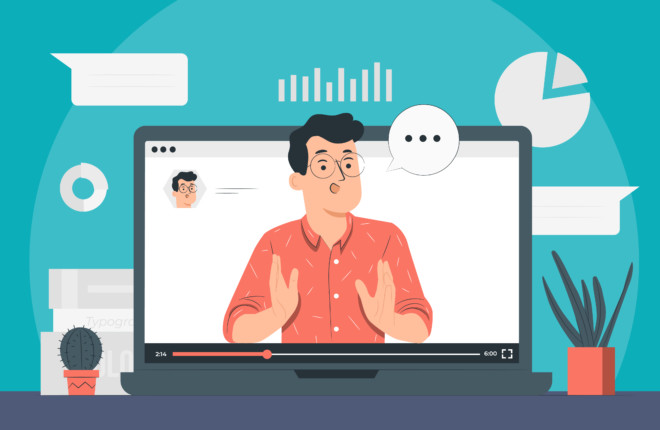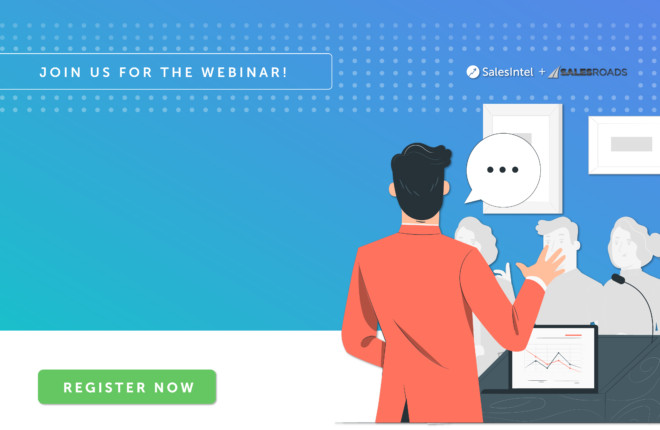The past year+ has taken a toll on events and those who produce them. Marketers had to completely rethink what they know about events and how they fit within their marketing strategy. They embraced virtual events and have proven they are a powerful tool for engaging prospects and generating pipeline.
Here are a few things to consider as you begin to think about the future of events and whether or not in-person events are set to make a comeback.
Virtual Events are Here to Stay
Comparing virtual events to in-person events is a lot like comparing apples to oranges. Yes, they are both fruit, but similarities tend to stop there. Marketers learned pretty quickly that virtual events are not a replacement for in-person. We can’t just take an in-person event and convert it to a virtual format like they are the same thing and expect the same results. Virtual events need a specific event strategy, defined objectives, and unique messaging and outreach strategies.
Understanding that virtual events need a distinct approach enables marketers to create experiences that meet their audience at every stage of the funnel. Virtual events are not going anywhere anytime soon. They are a powerful channel for targeting the right prospects, creating middle and bottom of the funnel content, and connecting with customers.
Why We Love Virtual Events
There is something special about being able to host a 30-minute virtual meet-up and connecting with an audience halfway around the world. Here are a few reasons we can’t get enough of virtual events:
Change Up Your Event Format
Hosting a virtual event opens the door to a wide variety of virtual event formats and experiences. Everything doesn’t need to be a webinar (though we love webinars!). We have seen marketers turn experiences like wine and whiskey tastings, magic shows, cooking classes, and roundtables into engaging virtual content. We have also seen events that might have been considered a webinar in the past, leveled up to AMAs, interactive product demos, and more. Virtual events create the opportunity to be creative and think outside the box when it comes to delivering event content.
Connect with the Right Audience
Before we all embraced virtual events, hosting an event in the EMEA or APAC region could be challenging. It wasn’t always easy to have “boots on the ground” to make sure your event went off without a hitch.
With virtual events, you can reach your audience around the world. You can tailor content to the region, host events in the right timezone, and reach an audience that might otherwise be hard to connect with.
Consume Content On-demand
One of the best things about virtual events is how easy hosting platforms make it to record and set marketers up for success to repurpose virtual content. Audiences want to be able to consume content on their own time. It is hard for our audiences to step away from what they are working on to attend and engage with virtual events. There is now an expectation that events will have an option to watch on-demand and it is up to marketers to make that happen.
Having an on-demand recording also opens the door for a variety of additional content that can be developed from your virtual events. A few things marketers can do include:
- Create a recap blog with a link to view on-demand
- Host an event recap webinar
- Repurpose your speaker’s sessions into a webinar series
- Post social content with key event takeaways
- Turn session content into an infographic
- Send a targeted nurture email with event content
- Update your newsletter with an interview with one of your speakers
Virtual events can impact prospects and customers long after the event is over.
The Future is Hybrid
Though virtual events will be a core component of marketing strategies going forward, there is still a desire and purpose for in-person events. This is where hybrid events will make an impact. Going forward, almost every event with an in-person audience should also have a virtual strategy.
The Many Components of a Hybrid Event
Hosting a hybrid event adds a level of complexity to your events. It is more than just adding a live stream to your in-person experience. It is vital that your virtual attendees feel they are getting as valuable of an experience as your in-person audience. This means both audiences should have the ability to:
- Network
- Watch event sessions
- Engage with your speakers
- Access event content
- Connect with sponsors
Hybrid events are the future of event marketing which means marketing teams are adapting and looking for skills that can support their hybrid programs. After a quick search for event and field marketing roles, we found a variety of descriptions that are looking for marketers who can lead their hybrid event strategy.
Event Description Examples:
- Once events return to in-person, this role will work with the Event Marketing Lead to develop our hybrid event strategy.
- This role requires a passion for modern marketing techniques and driving customer demand to digital, hybrid, and in-person event experiences.
- This role will be part of a team that owns the strategy and execution for experiential events whether virtual, physical, or hybrid for a global audience.
- Our mission is to create innovative and meaningful hybrid (virtual-physical) experiences for our prospects and customers at scale globally.
Developing a hybrid event strategy now (even before we are back to in-person events) will set you and your marketing team up to meet the expectations of your audience and produce hybrid events that make an impact.
What to Consider When Planning In-Person Events
In-person events are not over. There is something special about in-person events. The ability to interact with one another, take time away from the office to collaborate, and recharge made in-person events a great way to connect with your audience. No matter how much we miss them, a lot of people are not quite ready to attend or host in-person events. A recent poll from Banzai found that 41% are waiting until early 2022 to host an event with a live audience.
BUT when everyone is ready, there are a few things to consider before jumping back into in-person events:
Is Your Audience Comfortable?
A lot of people will feel a mix of emotions when it comes to returning to in-person events including excitement and apprehension. It is up to marketers to make sure we do whatever we can to relieve as much stress as possible.
Consider including:
- An overview of health and safety precautions
- Ability to attend virtually
- A limit to audience size
- Outdoor options
- Individually prepared food
- Individually packaged swag
Do whatever you can to take away or limit the anxiety that might come with attending an in-person event.
Do You Have a Plan B?
Every event needs a contingency plan.
- What will happen if there is another lockdown?
- What if your target audience is not quite ready and declines your invitation?
- What if there is a storm that causes you to cancel?
Backup plans are essential and enable marketers to be prepared and react on a dime, no matter the situation. When developing your contingency plan, it is important to understand what has to happen for you to pull the lever and launch your backup plan. Make sure to include all key stakeholders including your venue contacts, your sponsors, and your speakers in your plan. A well-thought-out backup plan is hopefully something you will never have to use but will make sure everyone involved feels prepared, making it well worth the effort.
Events Equal Experiences
This past year has thrown a lot at marketers who have shown their resilience and strength in a variety of ways. One of the biggest takeaways is that the future of events is all about experiences, and whether your event is virtual, hybrid, or in-person, it is up to marketers to deliver a valuable experience for our audience. The definition of what makes up an event may continue to change and marketers will continue to adapt and produce creative, revenue-generating experiences.
About Banzai:
Banzai is a leading enterprise SaaS provider of marketing automation solutions for experiential marketing through webinars and events. Banzai is used by companies like Nextiva, Red Hat, and Egnyte. Banzai’s marketing automation solution helps marketers have more successful webinars and events by growing their audience and creating more engaging experiences.


![Drive Revenue for Your B2B Company with Marketing Automation [Infographic]](https://salesintel.io/wp-content/uploads/2021/05/Artboard-1-3-660x430.jpg)

